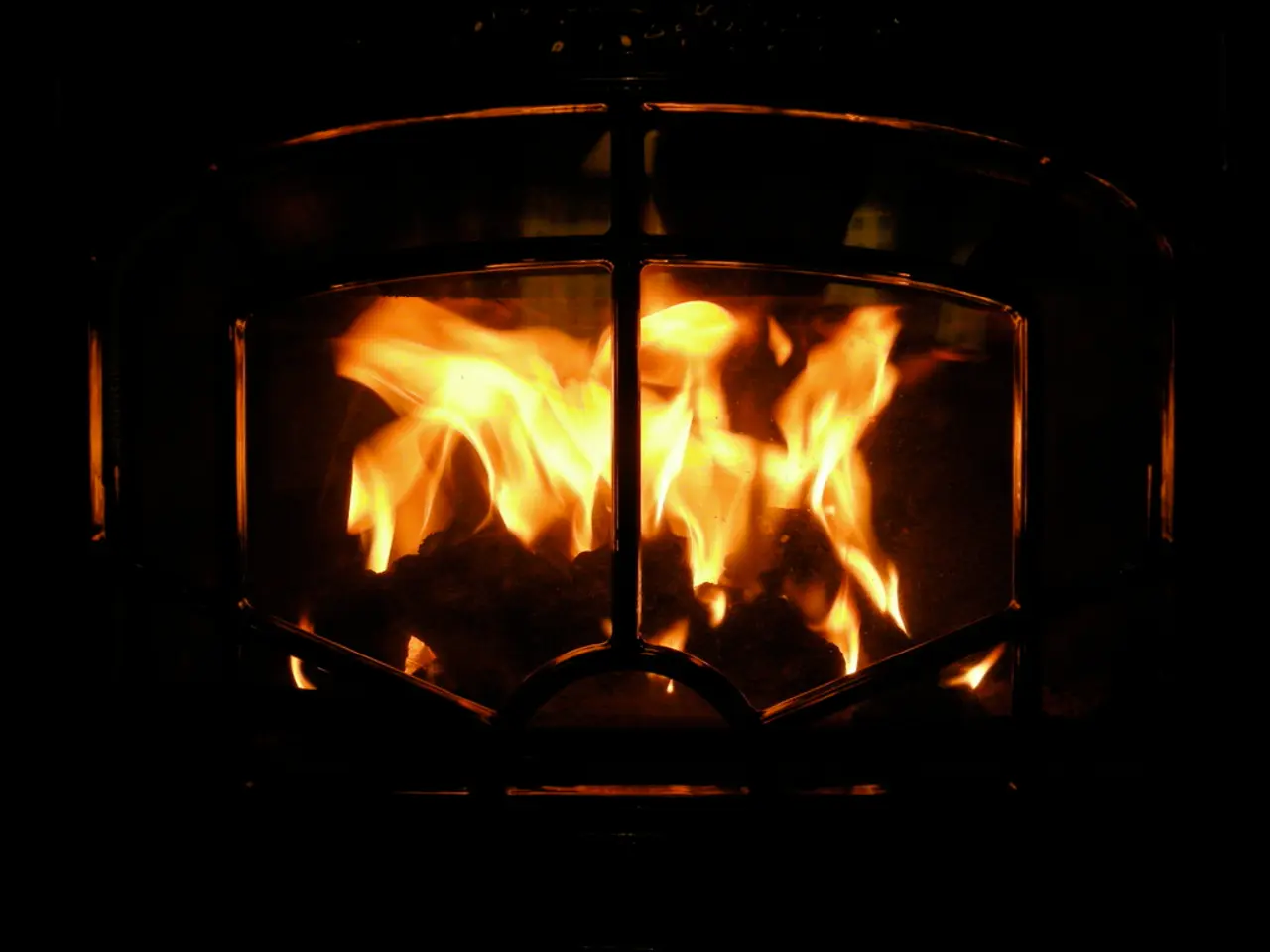Military deployed by Canadian government to combat forest fires in Newfoundland and Labrador
Canada Battles Wildfires Amidst Climate Change Impact
Canada is currently grappling with a series of wildfires, particularly in the provinces of Newfoundland and Labrador. As of August 11, 2025, there are seven active fires in these regions, with the largest one near Kingston in eastern Newfoundland continuing to expand[1].
The Kingston fire, spanning over 5,000 hectares, has forced approximately 3,000 residents to evacuate their homes[1]. One local resident confirmed the loss of his home to this devastating blaze[1].
In addition to the Kingston fire, there are other significant fires in Newfoundland, including those near Martin Lake and Great Rattling Brook. These fires are being aggressively tackled by water bombers, helicopters, and ground crews[3][4][5]. The Martin Lake fire is being contained with fuel breaks and continuous suppression efforts, while officials are closely monitoring the Bay d’Espoir Highway (Route 360) for potential closure due to wildfire risk[3][4][5].
In Labrador, two wildfires are active. One fire north of Happy Valley-Goose Bay has been declared out, while another to the south of Happy Valley-Goose Bay is being assessed by crews[2]. Both these fires appear to be caused by lightning strikes[2].
The Canadian government is coordinating closely with the Newfoundland and Labrador government and deploying firefighting crews, aircraft (water bombers, air tractors, and helicopters), and establishing reception centers for evacuees[2]. For instance, the Canadian Red Cross and Salvation Army are operating a reception center in Carbonear, providing shelter, meals, and support services for evacuees[2].
The ongoing wildfires in Canada are primarily attributed to the increasing occurrence of lightning, along with possible human factors in some cases[2][3]. The summer conditions in Canada are arriving earlier, which favors forest fires, and rising temperatures due to climate change result in less snow, contributing to these challenging circumstances[6].
The Canadian government has also mobilized soldiers and coast guard members to combat the forest fires in Newfoundland and Labrador[7]. The country is experiencing an increase in extreme weather events, with Canada warming at least twice as fast as the rest of the world in recent years[8]. Experts have stated that the unusual weather patterns in Canada are linked to climate change[9].
In conclusion, the Canadian government and emergency services are actively working to contain the wildfires, protect residents, and provide necessary support during the evacuations. The ongoing wildfires underscore the impact of climate change on Canada's weather patterns and the need for continued efforts to mitigate its effects.
[1] https://www.cbc.ca/news/canada/newfoundland-labrador/kingston-fire-evacuation-order-1.6115161 [2] https://www.cbc.ca/news/canada/newfoundland-labrador/nl-wildfires-update-1.6114924 [3] https://www.cbc.ca/news/canada/newfoundland-labrador/nl-wildfires-update-1.6114924 [4] https://www.cbc.ca/news/canada/newfoundland-labrador/nl-wildfires-update-1.6114924 [5] https://www.cbc.ca/news/canada/newfoundland-labrador/nl-wildfires-update-1.6114924 [6] https://www.cbc.ca/news/canada/newfoundland-labrador/nl-wildfires-update-1.6114924 [7] https://www.cbc.ca/news/canada/newfoundland-labrador/nl-wildfires-update-1.6114924 [8] https://www.cbc.ca/news/canada/newfoundland-labrador/nl-wildfires-update-1.6114924 [9] https://www.cbc.ca/news/canada/newfoundland-labrador/nl-wildfires-update-1.6114924
- The Canadian government's employment policy is being utilized to mobilize firefighting crews, soldiers, and coast guard members to combat the ongoing wildfires in Newfoundland and Labrador, demonstrating the importance of flexible workforces in emergency situations.
- In an effort to understand the impact of climate change on the frequency and severity of wildfires, environmental science researchers are actively monitoring the fires' behavior and taking samples to analyze the role of environmental factors.
- Given the recent increase in extreme weather events, discussed extensively in general news and various climate-change reports, the Canadian government is investing in the development of community policies that prioritize sustainable practices to mitigate the effects of climate change on local communities, as well as providing resources for adaptation and resilience.








